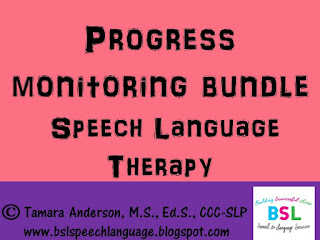There is just one month left of 2015 so it's a great time to stock up on speech-language therapy and educator resources for December and 2016! I have 2 winter themed products that target Tier I and Tier III English/Language Arts vocabulary.
I also highly recommend my progress monitoring tools and bundles available in my TPT store.
I also recently revised my FREE Parent Handouts for Communication Disorders. I also suggest you download my FREE Communication Success Tips for Colleagues to make sure that you maintain effective relationships at work.
Have a great week!
Tamara Anderson
Building Successful Lives






